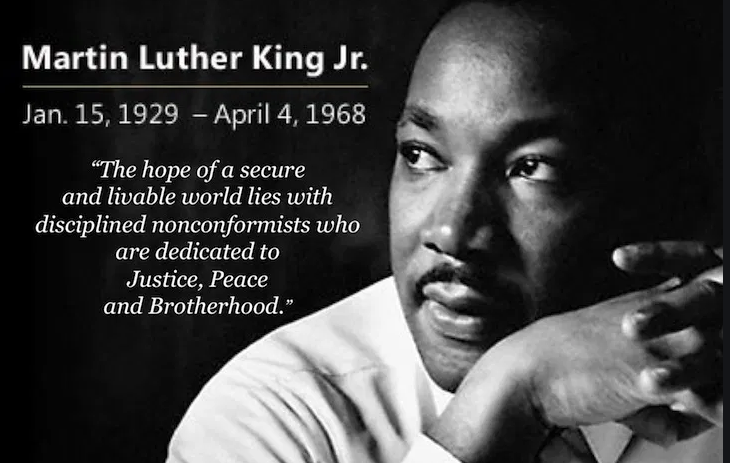Remembering Dr. Martin Luther King Jr.’s Impact on the World
January 21, 2020
The Importance of Martin Luther King Jr. Day
By: Rayahna Tryka and John Watson
Dr. Martin Luther King Jr. is known for his contributions as a social activist to the American civil rights movement in the 1960’s. He was born on January 15th, 1929. Martin Luther’s first experience of segregation as a child was when his white friends attended a different elementary school than him and were no longer allowed to come over to play under the authority of their parents. His most popular speech, “I Have a Dream” spoken in 1963 was a speech that inspired many to believe that America could become rid of segregation and racism. He was appreciated for using nonviolent protests to overcome injustice. Dr. King spent his life trying to end all segregation laws preventing blacks from living a fair and equal life. He lived by the moto, “all men are created equal.” On December 1, 1955, Rosa Parks, secretary of the local chapter of the National Association for the Advancement of Colored People, refused to give up her seat to a white passenger on a Montgomery bus and was arrested. Activists coordinated a bus boycott that would continue for 381 continuous days. The Montgomery Bus Boycott placed a harsh economic strain on the public transit system and downtown businesses. They chose Martin Luther King, Jr. as the protest’s leader and official spokesman. By the time the Supreme Court ruled segregated seating on public buses unconstitutional in November 1956, King was heavily influenced by Mahatma Gandhi and the activist Bayard Rustin. Dr. King had then entered the national spotlight as an inspirational leader of organized, nonviolent resistance. Because of his great works and inspiring beliefs, Dr. King was awarded the Nobel Peace Prize in 1964 making him the youngest person to ever receive the honor. Other awards he had received were the 1957 Spingarn Medal, the 1959 Anisfield- Wolf Book Award, the 1971 Grammy Award for the best-spoken album, the 1977 Presidential Medal of Freedom and the 2004 Congressional Gold Medal. He travelled across the world to give lecture on the importance of nonviolent protests and civil rights and now, we honor his everlasting impact on the world today. Despite his sorrowful death on April 4th, 1968, we recognize him on the third Monday of every January.
“Our lives begin to end the day we become silent about things that matter.”
–Martin Luther King Jr.



